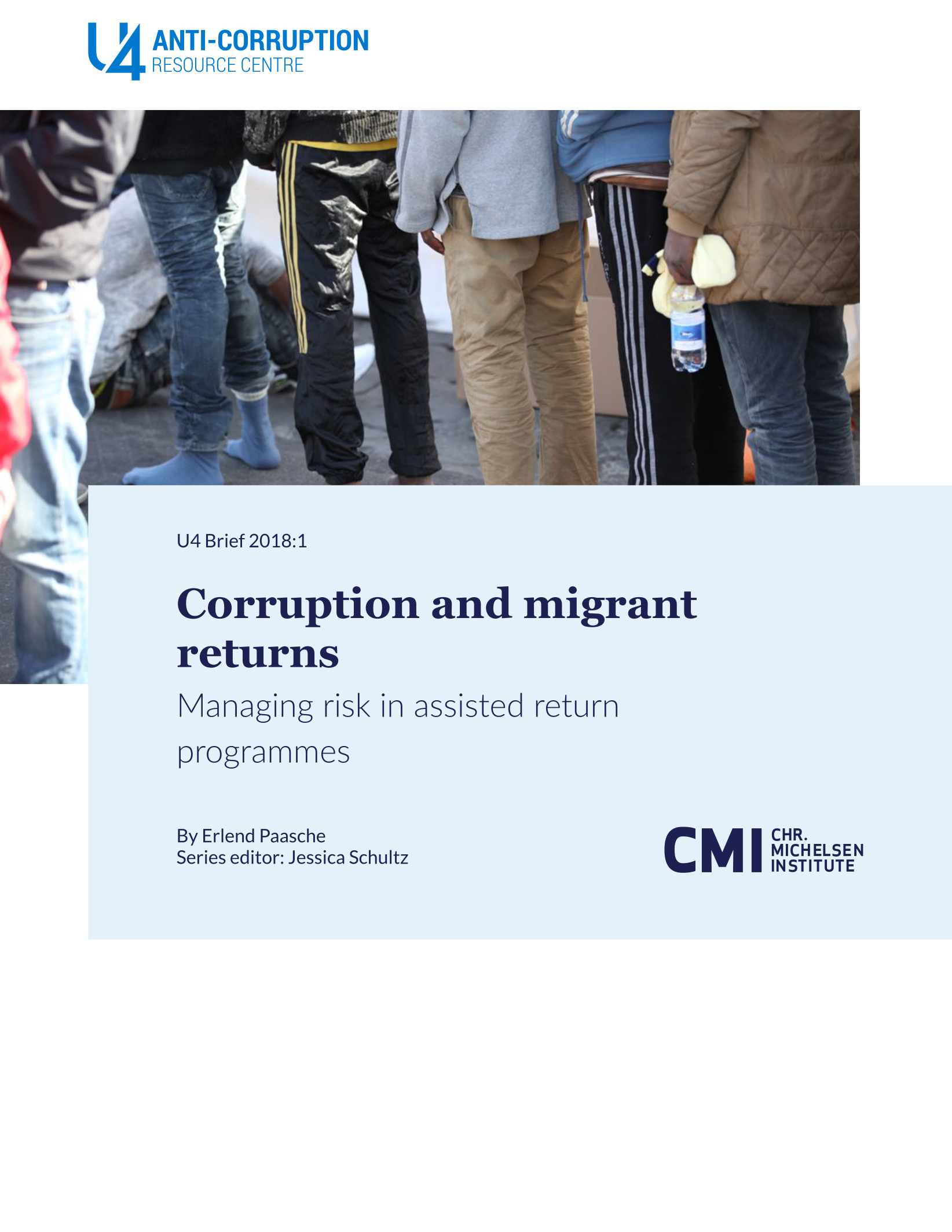Main points
- Anti-corruption controls can complicate service delivery and increase migrants’ perceptions of corruption within return and reintegration programmes. Donors should monitor not only whether implementing partners deliver the promised assistance but also how efficient and transparent the process is for returning migrants.
- In-kind support, for example to start a business, typically involves multiple bids, contracts, licenses and other documents that returnees often struggle to produce. While these requirements may reduce opportunities for corruption and fraud, the resulting delays undermine programme credibility and uptake.
- Corruption control measures should be sensitive to migrant vulnerabilities, particularly when it comes to documentation and travel demands.
- An effective complaints mechanism for beneficiaries of return assistance is essential not only to curb corruption but also to establish trust in the programme and its implementers.
